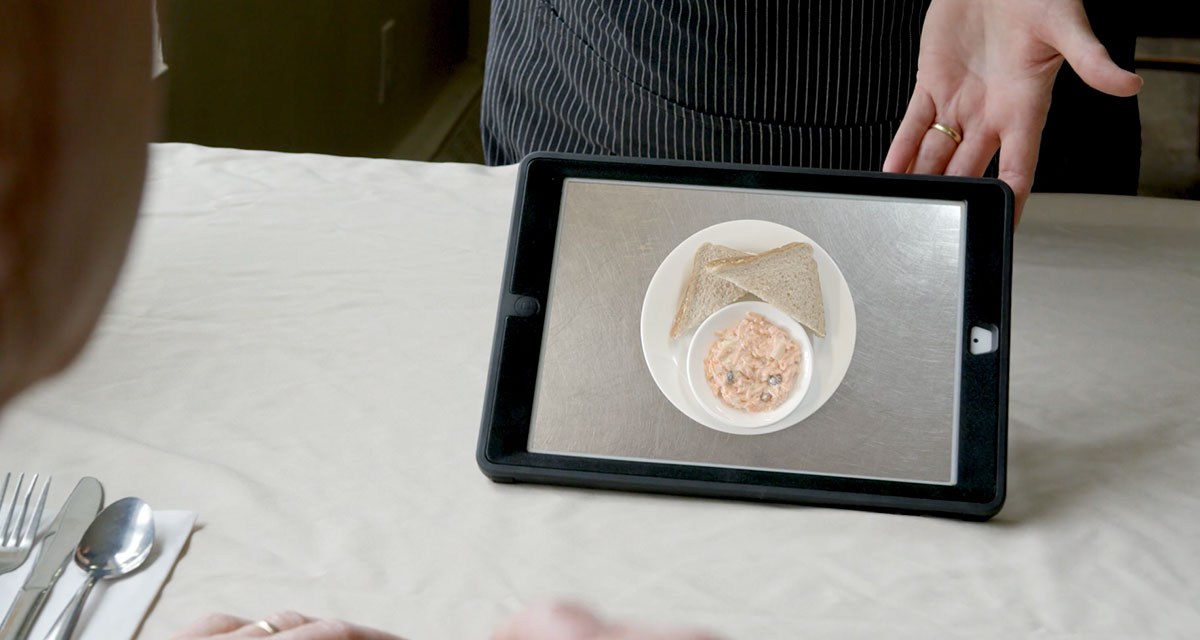
World Alzheimer's Day: How Foodservice Management Software Can Help You Overcome 4 Common Dietary Challenges in Memory Care
With appetite loss, motor and sensory difficulties commonly associated with Alzheimer’s disease, ensuring a patient’s nutritional needs are met can be one of the most challenging aspects of memory care.
...Yet, it can also be one of the most rewarding.
Because after all, administering proper diet and nutrition matched with familiar and comforting foods can have a positive effect on overall quality of life for those living with Alzheimer’s.
And as the number of Americans living with the disease is expected to rapidly increase in the coming years, having the right technology on your side becomes all the more important to help you deliver the personalized dietary care your community depends on.
Read on to discover the ways foodservice management software can help you overcome four common nutrition challenges, so you can make a profound impact on the daily lives of those living with Alzheimer’s in memory care.
Challenge #1: Low appetite
According to the Alzheimer's Association, poor appetite can occur for those living with Alzheimer’s for many reasons ranging from inability to recognize foods to a lack of daily exercise.
And in some cases, extreme changes in food preference can happen overnight.
When you have a wide range of patients to serve every meal of every day, staying on top of these quickly evolving dietary preferences can start to feel next to impossible.
And this is where foodservice management software can help.
With comprehensive people profiles, you can keep a digital record of likes, dislikes, allergens, food textures and diet orders, so imperative patient information is always at your team’s fingertips.

This helps ensure you’re serving recipes your patient should enjoy eating, backed by nutritional forecasting to confirm whether dietary needs – even for the pickiest of eaters – are being met.
Challenge #2: Motor & swallowing difficulties
As Alzheimer’s progresses in a patient, chewing and swallowing difficulties can become more common. And when specific needs may vary, it becomes all the more important to ensure your memory care patients are always served a meal with the appropriate textures.
Meal service solutions like MealSuite® come with a breadth of recipes expertly created by our in-house team of dietitians to allow for maximized use across therapeutic and texture-modified diets, so you can plan a modified menu that fits each patients’ unique needs.

Patients living with Alzheimer’s can also experience different ranges of motor difficulties when it comes to consuming their meals.
Whether it’s a challenge to use utensils, or they need their food cut for them, foodservice management software allows you to keep all of the important, up to date details of each patient at your foodservice team’s fingertips.
Challenge #3: Sensory obstacles
Living with Alzheimer’s has potential to affect the senses, sometimes leaving a patient’s sense of sight, taste or smell less reliable as they once were.
One specific dining challenge that can come of this deterioration of the senses is the lack of ability to tell if a food they’re consuming is too hot or cold. And when a patient can’t determine if a food on their plate can burn or harm them, this leaves it completely up to your team to ensure you’re serving meals at the appropriate temperature.
When you choose an all-in-one foodservice management software that fully integrates with Temperature Sensors, you can accurately check to ensure you’re serving your community their meals at the right temperature, at the right time.

The right foodservice software can also help you engage Alzheimer’s patients, while giving them more freedom of choice, even when cognitive barriers may exist.
By choosing a software that has a tablet feature (like MealSuite® TOUCH), you can easily take plate photos for display on tablets to allow for improved communication when taking orders.
Challenge #4: Peace of mind for families
As you know, choosing a care community for a loved one is a very personal and emotional choice for family members – especially when their loved one is living with Alzheimer’s.
When memory barriers exist, it can be a challenge for families to know what their loved one is consuming, and whether they’re getting the proper nutrition at each meal.
And they’ll be looking to you for that peace of mind in knowing their loved one’s needs are being met.
When you choose a foodservice management software that comes with a Family Portal, you can provide families with an up to date remote view of what their loved one is being served, all the way down to the specific ingredients and nutrition offered in each meal.

This World Alzheimer’s Day, we want to say thank you for all you do for our seniors in memory care each and every day.
And as you continue to overcome these common Alzheimer’s-associated dietary challenges – and more – MealSuite® is here for you.
To learn more about how foodservice management technology can help support you in your memory care dietary operations, reach out to us today for a free personal consultation.

 HOME
HOME